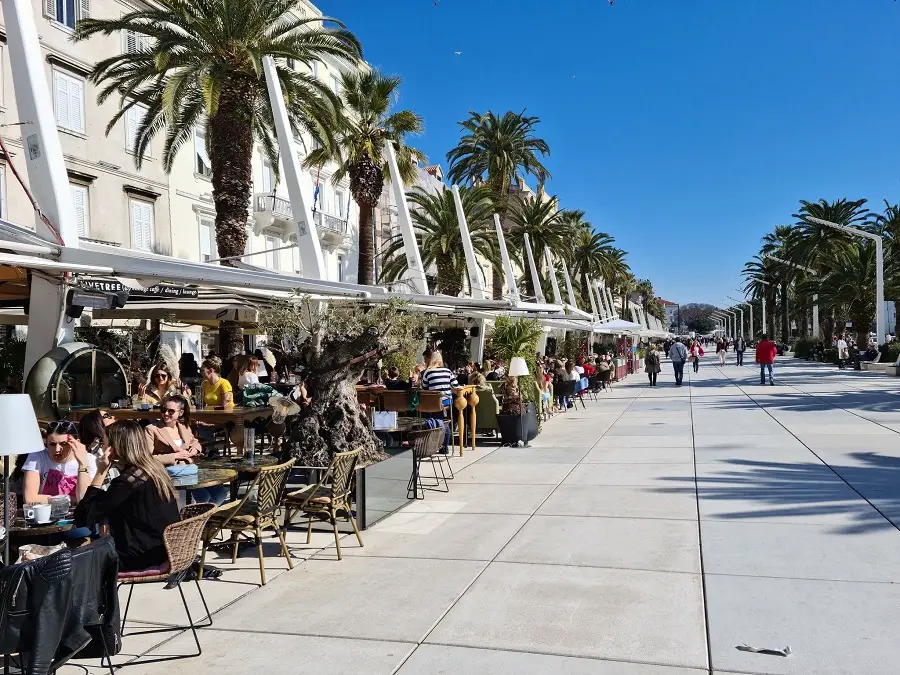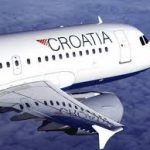“This campaign has an educational character because we want to introduce our guests to protocol, and epidemiological measures implemented at all levels of tourism to provide them a safe and comfortable stay in our country” – reads the statement put forward by the Croatian National Tourist Board.
Let us read that again. Once more please. So, we are planning to educate prospective guests on the protocols and epidemiological measures that we will be implementing during the coming season after thirteen or fourteen months in which those guests have heard nothing else but information about protocols and epidemiological measures.
The campaign put forward by the Ministry of Tourism and promoted by National Tourist Board is called “Safe Stay in Croatia” or “Stay Safe in Croatia”, I am not entirely sure which. It has been couple of weeks now since this project was unveiled, and I would assume those educational activities are well underway, as the authors themselves gave a timeframe of two months, March, and April, to carry out this campaign in the markets of Germany, Austria, Italy, Poland, Great Britain, the Czech Republic, Slovakia, Hungary, France, and the Netherlands.
Google search for the news on the subject of “staying safe in Croatia” delivers several pages of results, almost entirely in Croatian. It is akin somewhat to the entire page advertisement of the Digital Nomads program in Jutarnji List, Croatia’s largest daily newspapers, which has about zero reach outside of Croatia.
Is this our unique selling point for the season of 2021? That we are distinctly good in implementing protocols and epidemiological measures, or uniquely good in that sense? Do we have the data to support? Have we done much better in the way we handled coronavirus pandemics than for example Greece, our direct competitor, another EU country looking to kick start its economy this summer by attracting millions of European travelers? How about Portugal? Surely, people will look at the protocols and measures implemented in Portugal, Greece, and Croatia and after witnessing our educational campaign will decide to spend their money on our beautiful coastline this summer?
Is there anyone out there who really believes, as the world prepares to vaccinate most of its population by the third quarter of 2021, that the travelers, stuck in their homes for year and half will be deciding on their holidays based on the level of epidemiological measures in the destination? Is there any research that supports this claim? If yes, I would love to see it. Do we even know what those protocols and measures are, when they are subject to bi-weekly changes? Will the protocols and measures in place now, advertised across the channels be relevant come July or August? How likely is it that vaccinated people will start choosing their destination by epidemiological measure in place?
The UK has vaccinated over 44% of its adult population and will have all adults vaccinated by June. Across the ocean, approximately 74% of Americans who want to travel in 2021 are either likely to get the vaccine or have already been vaccinated. These are big and important markets for us, if not in terms of number of tourists, but very much in terms of average spend per day per person. All people are looking for is the clarity of information, ease of border crossing and a few positive vibes. There is plenty of research to support that. And millions of bookings that have been pouring in from the UK to Spain over the past couple of weeks, country that has been seen by many as a failure to address the pandemics.
This is starting to sound like a rant, but it really is not. I am sincerely flabbergasted that someone believes that the job of the Ministry of Tourism and the National Tourist Board is to pour money into advertising activities focused on the protocols and epidemiological measures in place, including production of videos, that will be delivered via online channels and social networks with the hashtag #SafeStayInCroatia and via the most read online portals in above mentioned markets. An interesting but separate topic is the exclusion of Scandinavian markets from these activities, but perhaps that is for the better, as our measures might come clashing with Swedish protocols for the past year or so and act as a deterrent from booking.
This made sense in the summer of 2020, and even than only to a point, and I was one of those who propagated the idea of safety of the destination as one of the more important characteristics, but this was in a time when we knew infinitely less about the virus, when there was no vaccine in sight and the population of people that had the virus was still exceedingly small. A year ago, I wrote an article on the importance of maintaining communication and visibility, but urged everyone to drop the corporate language and make it honest, authentic and relatable; to tell a heartfelt story, to tell a dream or to celebrate healthy living. This applies today as well, and applies to everyone, from small hotels and travel agents to the destination management companies and national tourist boards.
I understand the need to insert the prevention emotions in the messaging, to design it in a way to relate to protection, safety, and security. However, even at that level the message must be crafted more to invoke the feeling of ease, ease of understanding and ease of use and must be consistent across all the platforms. Alternatively, if we wanted to play on the emotions of safety there is a story to be told of the low density of our islands and inlands, of the vast outdoors, and of the sea and sun as healing agents. The only message that errs on the side of clarity that I have seen came from the Mayor of Dubrovnik, Mato Franković who said that Croatia should welcome vaccinated UK tourists without restrictions. However, prevention emotions cannot be all we message to the world. We need to add a layer of promotion emotions, to invoke the emotions of joy and happiness, satisfaction, accomplishment and elation, celebration. We need to tell people that they are Welcome to Celebrate Life This Summer in Croatia! Simple as that!
To read more from Zoran Pejovic on tourism matters, check out his TCN author page.









